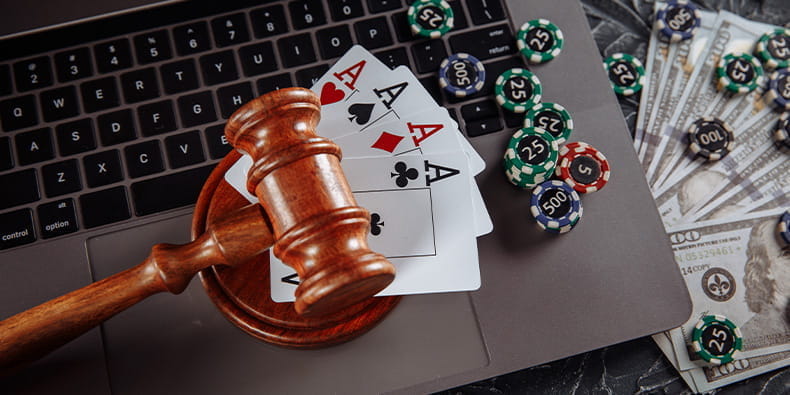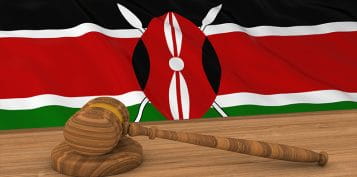Texas Gambling Laws: Regulations and Loopholes
Texas may be one of the most developed American states, but one of its industries is practically non-existent. Of course, we are referring to gambling. Texas gambling laws are quite draconian and state-based enthusiasts have few avenues to pursue their passion. But while there may be strict rules and regulations, there are always loopholes to be exploited. In this article, we will take a look at the Texan betting scene and what options are available to state residents.Gambling in Texas? There Is No Gambling in Texas
The United States is certainly one of the strangest countries out there, with societal attitudes varying greatly across state lines. Whereas something might be perfectly okay and accepted in one state, it is nothing short of mortal sin in the neighbouring one. Gambling is one of the few industries that has been demonized country-wide, with some exceptions such as Las Vegas and Atlantic City. Texas is no different in this case.
Gambling Laws in Texas: Casino Gaming and Sports Betting
When it comes to gambling on state jurisdiction, most bettors find themselves lacking in options. The gambling laws in Texas are clear in that they prohibit both sports betting and casino gaming. According to the Texas State Law Library, Penal Code §47.02 a person commits an offence if he:
- – Makes a bet on the partial or final result of a game or contest or on the performance of a participant in a game or contest
- – Makes a bet on the result of any political nomination, appointment, or election or on the degree of success of any nominee, appointee, or candidate; or
- – Plays and bets for money or other thing of value at any game played with cards, dice, balls, or any other gambling device.
In effect, this legislation is a blanket ban on casino gaming and sports betting. This law governs the whole State of Texas, and there is no way around it. If you are caught engaging in any of these activities, you will face a misdemeanour charge and will have to pay fines.
Of course, the ban is not solely targeted at players. Hosting a betting shop or a gaming hall, accepting bets, or promoting gambling in any capacity is also a crime. Texas laws on gambling are quite efficient in their intent and leave little room for interpretation. Of course, you can still gamble at home with friends, as long as it is not a commercial operation and you are not making a profit or otherwise having an advantage by hosting the game.
Texas Online Gambling Laws
As far as online gambling in Texas goes, the state has taken no action either against it or to regulate it. iGaming in Texas is limited by the Unlawful Internet Gambling Enforcement Act of 2006, which comes from the federal level. With the Act in place, there is no need for the local government to introduce new laws.

So where does this leave the Texan iGaming scene? It is illegal to participate and offer online gambling to the Texas public. However, the state authorities have not taken any steps to curb what Internet gambling there is. So far, locals have been able to stake their money online with no issue, albeit doing so without any legal protection.
Permitted Forms of Gambling in Texas
While some of the most popular types of gambling might be illegal in Texas, that does not mean that all kinds of betting are prohibited. Charitable gaming is one of the more socially acceptable options. It comes in the form of bingo and raffles. For organizations to operate these events, they have to be licensed by the authorities, namely, the Texas Lottery Commission.
Bingo is quite popular with the locals it seems, with non-profits and community groups organizing sessions regularly. A county has to hold a referendum before it is allowed and this has happened in the vast majority of them. Bingo prizes cannot exceed $750 per game. Raffles are held up to twice per year, though there are no cash prizes involved. The value of the rewards can go as high as $50,000, however. Collectively, the two seeing a turnover of nearly $1 billion per year.
| Year | Total Gross Receipts | Prizes Paid to Players | Charitable Distributions |
|---|---|---|---|
| 2011 | $706,128,229 | $534,017,329 | $29,039,795 |
| 2012 | $723,514,855 | $549,003,354 | $29,464,078 |
| 2013 | $719,645,137 | $549,396,054 | $26,574,139 |
| 2014 | $739,748,181 | $566,542,027 | $25,849,312 |
| 2015 | $756,772,779 | $575,251,590 | $28,521,047 |
| 2016 | $761,488,968 | $579,702,154 | $30,187,208 |
| 2017 | $7776,576,723 | $590,541,537 | $31,294,606 |
More ‘proper’ gambling options can be had on the racetrack. Texas laws on gambling allow horse and greyhound racing bets directly at the track. The state limits the number of existing tracks at any time. There are three greyhound racing tracks in Cameron, Galveston, and Nueces. Horse racing tracks, on the other hand, are more numerous, with more than a dozen licenses issued. Both horse and greyhound racing events and gambling are overseen by the Texas Racing Commission.
Native American Casinos in Texas
While the State of Texas might be against casino gaming in state jurisdiction, there is little legislators can do when it comes to Native American reservations. The three recognized tribes – namely, Ysleta Del Sure Pueblo, the Kickapoo Traditional Tribe, and the Alabama-Coushatta Tribe – have tribal sovereignty. This means that they can govern themselves with their own laws, which need not coincide with state laws.
As a result, all three of the Texas tribes operate their own land-based casinos. These include the Kickapoo Lucky Eagle Casino, the Speaking Rock Entertainment Center, and the Naskila Gaming. All three are located within the borders of Texas, but are not subject to gambling laws in Texas. This has proven to be quite lucrative for the tribes since they hold an effective monopoly on casino gambling in the state.

Currently, visitors can stake their money on slots, table games, lotteries, bingo, poker, and more. The opportunities are many and the tribal casinos look to fulfil every possible niche in the market.
Throughout the years, there has been pushback against these establishments, however. Since the 90s, plenty of politicians have tried to shut them down on one pretence or another. Notably, in 1998, then-Governor George W. Bush also took a shot but failed initially.
There have been times where certain casinos have been forced to close their doors. But ultimately, they have all returned to normal operations in the end.
FAQ about Texas Gambling Laws?
The state of Texas gambling is a complicated affair. There are many things that one needs to remember about it and you may not want to read through all of the legal jargon. For your convenience, we have prepared a short FAQ section that covers everything important.


